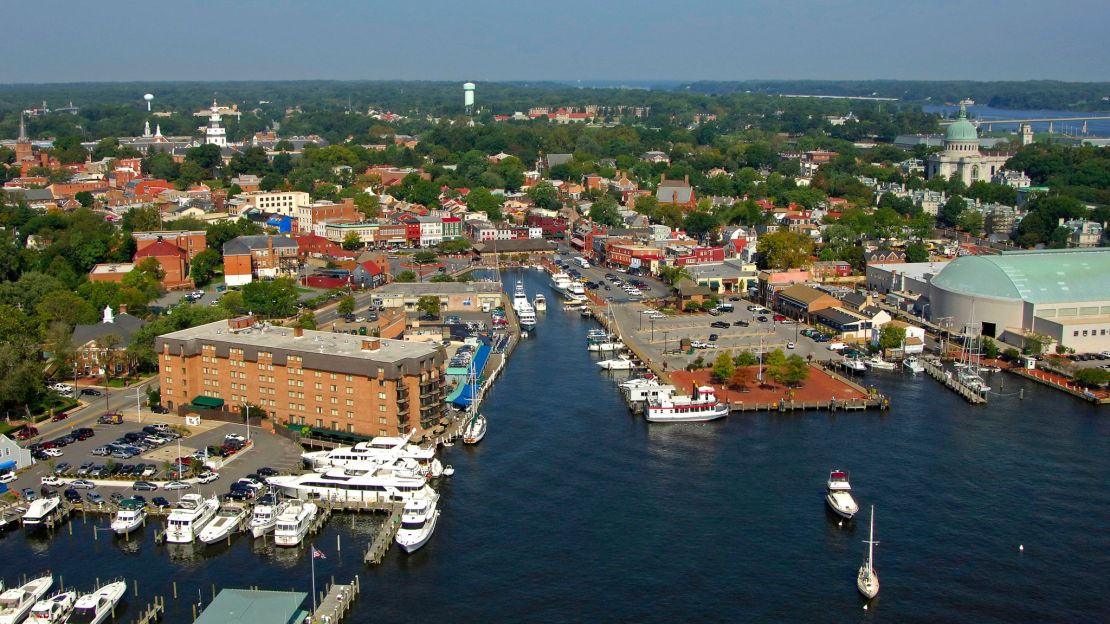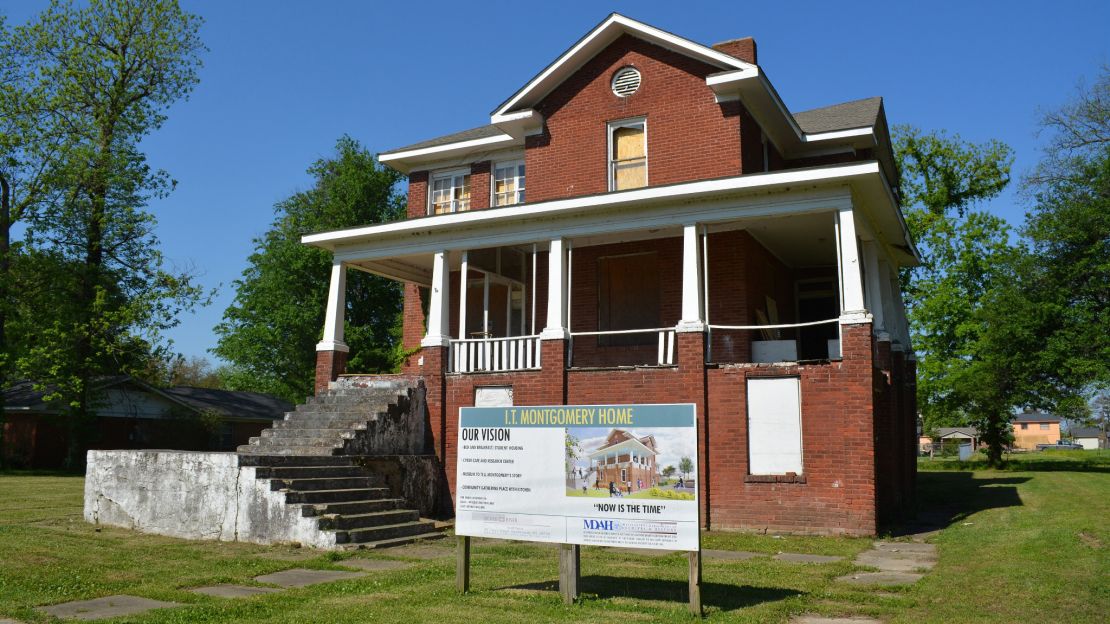From a formerly enslaved person’s home to the most famous US road, the National Trust for Historic Preservation has included both well-known and forgotten historic sites on its 2018 list of America’s 11 Most Endangered Historic Places.
While nearly 300 places have been included on the list over the past 31 years, the list has a good record: Less than 5% of listed sites have been lost during that time.
The National Trust creates the annual list to highlight examples of architectural and cultural heritage that could be relegated to the dustbins of history without intervention.
The National Trust’s 2018 list includes a mix of historic locations that could be lost due to of lack of maintenance, damage from natural disasters, or are subject to development proposals which would change the character of these national treasures, says Stephanie K. Meeks, president and CEO of the National Trust for Historic Preservation.
“For over 30 years, our ’11 Most Endangered Historic Places’ list has called attention to threatened one-of-a-kind treasures throughout the nation and galvanized Americans to help local communities save them,” says Meeks.
“From the East L.A. Chicano Student Walkout schools to Route 66, America’s Mother Road, to historic resources in Puerto Rico and the US Virgin Islands severely damaged by last year’s hurricanes, this year’s list reflects both the diversity of America’s historic places and the variety of threats they face.
“As it has over the past three decades, we hope this list inspires people to speak out for the cherished places in their own communities that define our nation’s past.”
A twelfth site – consisting of four towns in Vermont’s Upper Valley – was placed on Watch Status, which the National Trust uses to draw attention to a growing threat to a historic site. But, say officials, there are solutions to stop or halt the threat.
1. Annapolis City Dock Area – Annapolis, Maryland

A current proposal to re-zone portions of the Colonial Annapolis Historic District would damage the area’s “quality of life and heritage tourism economy” and “permanently diminish its charm and unparalleled views,” the National Trust says.
2. Ashley River Historic District – Charleston County, South Carolina
This South Carolina Lowcountry district has a many layered history that the National Trust says is “threatened by an annexation proposal that could lead to zoning changes and intensive development that could irreparably damage the historic landscape.”
3. Dr. Susan LaFlesche Picotte Memorial Hospital – Walthill, Nebraska
Named after the first Native American licensed to practice medicine in the United States, this hospital may have been the first hospital constructed for any Native American reservation without federal funding.
4. Historic Resources of Puerto Rico and the US Virgin Islands
Thousands of historic and cultural resources throughout Puerto Rico and the US Virgin Islands were damaged in the 2017 hurricanes. As the 2018 hurricane season arrives, recovery efforts are hampered by limited financial resources and materials.
5. Isaiah T. Montgomery House – Mound Bayou, Mississippi

One of the earliest all-black municipalities, Mound Bayou was established by former enslaved person Isaiah T. Montgomery after the Civil War. Located in the Mississippi Delta, Montgomery’s home urgently needs repairs.
6. Larimer Square – Denver, Colorado
Denver’s first commercial block and first historic district, Larimer Square has stood as a national model “for revitalizing neighborhoods through preservation,” the National Trust says. But the trust claims that the ordinance that has protected the square is now under threat by “an inappropriate development proposal” that also calls for the “partial demolition of several buildings” and “the potential construction of two towers.”
7. Mary and Eliza Freeman Houses – Bridgeport, Connecticut
The Freeman Houses, which may be the oldest African American-built houses in Connecticut, have been vacant for years and are in dire need of repairs. They are part of the story of the free black community in the North before the Civil War.
8. Mount Vernon and Piscataway National Park – Mount Vernon, Virginia and Accokeek, Maryland
A proposal to build a gas compressor station across the Potomac River from Mount Vernon and near Piscataway National Park “has the potential to negatively impact the historic viewshed of Mt. Vernon and natural beauty of Piscataway National Park,” says the trust.
9. Route 66
The internationally famous Route 66 symbolizes the United States’ love of the open road. While Congress is taking steps to recognize Route 66 as a permanent National Historic Trail, the US Senate must pass legislation signed by the president to make the designation permanent, the trust says.
10. Ship on the Desert – Salt Flat, Texas
This early Modernist house located in Guadalupe Mountains National Park in West Texas suffers from neglect and needs maintenance to be opened to the public (it’s currently closed).
11. Walkout Schools of Los Angeles – Los Angeles, California
East LA’s “Walkout Schools” consist of five historic school campuses that were instrumental locations in the 1968 East L.A. Chicano Student Walkouts, which galvanized the national Chicano Civil Rights Movement. The schools are James A. Garfield High School; Theodore Roosevelt High School; Abraham Lincoln High School; Belmont High School; and El Sereno Middle School (formerly Woodrow Wilson High School).
The school district has called for some of the buildings to be demolished.
12. Four Towns of Vermont’s Upper Valley – Royalton, Sharon, Strafford and Tunbridge, Vermont
These four historic towns and their surrounding farms and forests would be” permanently altered” by a development proposal calling for construction of a new planned community in rural Vermont.















